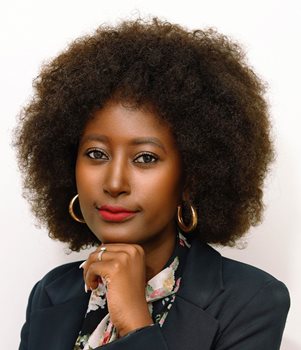
Top stories





Energy & MiningGlencore's Astron Energy gears up with new tanker amidst Sars dispute
Wendell Roelf 9 hours

More news




















Logistics & Transport
Uganda plans new rail link to Tanzania for mineral export boost







Regardless of the huge budget apportioned to education, the country has one of worst education system of all middle-income countries that participate in national educational appraisals. Our Grade 9 learners were ranked position 38 out of the 39 countries who took part in the International Association for Evaluation of Educational Achievements in Mathematics.
After four years of education, 82% of South African children cannot read with comprehension. Twenty-five percent (25%) of the matriculants fail their final examination, approximately 50% of the learners drop out of school before completing matric and under 5% of the learners who commence primary school end up with a tertiary qualification.
From the abovementioned, it is evident that the South African education system is in a crisis and requires urgent attention, contrary to the presidents “silent revolution’ stated in Sona 2023.
Endeavours to improve South Africa’s education system are vital, as firstly, education is undoubtedly a way out of poverty and inequality experienced by most of the country’s population, reduces the unemployment rate and education is a great tool for advancing economic growth, encouraging innovation and strengthen society. Undoubtedly, improving the education system largely results in developing a thriving and equitable economy that South Africa desperately needs.
Equitable access to quality education absolutely has an important role to play in undoing social and economic inequality, but addressing the challenges, that plague education in South Africa has proved to be a notoriously complex undertaking.
Education is a wicked problem – a challenge that has no clear solution. Traditional solutions are ineffective and throwing money at the problem does not yield lasting change. In light of this challenge, there has been greater acknowledgment that government alone cannot shoulder the problems in education.

Business, as a socio-economic partner, must help lead the movement. After all, business is the lifeblood of any economy and relies on a well-educated workforce to drive economic growth. School principals, in turn, are vital in terms of ensuring that schools are environments of quality teaching and learning that nurture and equip the future workforce.
Whether you were sold on President Ramaphosa’s articulation of his vision for our beloved country, and believe that this SONA address marks a departure from years of empty rhetoric, one thought prevails: turning the tide on a failing education system will require the input of all South Africans.
Instead of the government throwing subsidies to ECD centres, we need an agile and innovative multidisciplinary approach such as involving business in education. South Africa, as a developed economy, has a plentitude experienced business leaders who are well trained to assume leadership positions and manage change who can be partnered with school principals who serve under resourced communities.
This process gives the private sector a worthwhile conduit for social investment. The philanthropic efforts of business in education are not limited to tangible donations – there is an opportunity to channel funds into a sustainable process that strengthens individual leadership skills, builds social capital, implements change initiatives, and provides support in schools and communities.
To address the many challenges facing the South African education system, we need to start implementing an “out of the box” solution-driven approach to the wicked education crisis or risk our learners being left behind on the global stage. Perhaps we are the kind of leaders of country dearly needs.